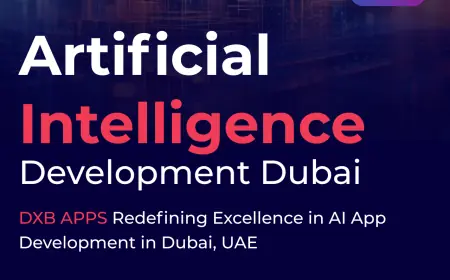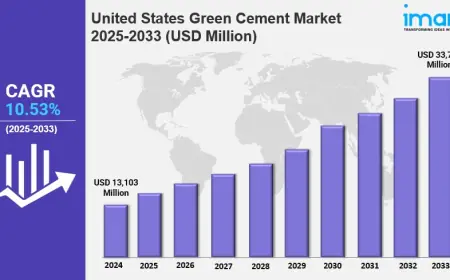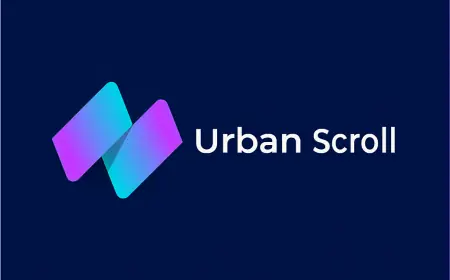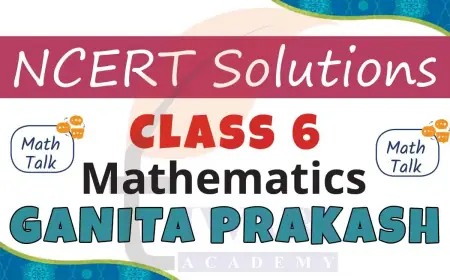How ZKML and Smart Contracts Are Shaping Private AI Systems
Discover how ZKML and smart contracts are powering private AI systems in 2025. Learn how a smart contract development company builds secure, privacy-preserving AI automation for Web3 and enterprise use cases.

As AI continues to permeate every layer of our digital infrastructure, privacy has become a primary concern. In 2025, one of the most groundbreaking developments at the intersection of blockchain and AI is the fusion of Zero-Knowledge Machine Learning (ZKML) and smart contracts. This fusion is enabling powerful, privacy-preserving AI systems that are decentralized, verifiable, and trustless.
From healthcare diagnostics to DeFi trading algorithms, ZKML allows AI models to operate securely without revealing sensitive data. When paired with smart contracts, these models can execute decisions autonomously on-chain—without compromising user or institutional privacy.
In this blog, we explore how ZKML and smart contracts are shaping the next generation of private AI systems, the technical foundations that make it possible, and how a smart contract development company plays a vital role in bringing these systems to life.
Understanding ZKML: Zero-Knowledge Meets Machine Learning
ZKML stands for Zero-Knowledge Machine Learning. It applies the principles of zero-knowledge proofs (ZKPs) to machine learning models, allowing users to prove that a model produced a certain output on specific data—without revealing the data or the full model.
For example, a medical AI model can verify that it detected a condition from encrypted patient records without exposing any of the underlying information. Similarly, a financial model can prove that it selected a trade action according to defined risk policies—without leaking proprietary logic or trading data.
In the context of Web3, ZKML ensures that AI-driven decisions can be validated on-chain using smart contracts, preserving both data confidentiality and model integrity.
Smart Contracts as the Execution Layer
Smart contracts serve as the decentralized enforcement engine for ZKML systems. They act as the logic layer where model outputs—along with their zero-knowledge proofs—are verified and acted upon.
When ZKML is combined with smart contracts:
The AI model runs off-chain
A zero-knowledge proof is generated attesting to the model's correct output
That proof is submitted to a smart contract
The smart contract verifies the proof and triggers an on-chain action
This architecture allows AI systems to remain private while still executing verifiable, autonomous actions—ranging from DeFi trades and DAO proposals to health insurance claims and KYC approvals.
A specialized smart contract development company is essential in building these verification circuits and contract architectures that can securely interact with ZKML outputs.
Why Privacy Matters in Decentralized AI
AI systems require massive datasets to function effectively. These datasets often include highly sensitive information—financial transactions, biometric data, behavioral logs, or personal preferences.
In traditional AI applications, this data is centralized, exposing it to breaches, manipulation, or misuse. Web3 aims to decentralize control, but doing so without privacy would only replicate the surveillance problems of Web2.
ZKML solves this challenge. It allows models to operate privately and still provide verifiable proof that an output was derived fairly. This unlocks powerful applications:
Health AI that diagnoses from encrypted patient data
Financial AI that executes risk-based trades without leaking strategy
Legal AI that reviews contracts without disclosing proprietary clauses
Recommendation engines that protect user profiling while remaining accurate
The role of smart contract development services in this ecosystem is to ensure the logic and rules that govern these AI decisions are enforceable, upgradeable, and tamper-proof on-chain.
Use Cases of ZKML + Smart Contracts in 2025
Private Credit Scoring
Traditional credit systems are opaque and invasive. With ZKML, an AI model can assess creditworthiness based on private data and submit a proof of eligibility. A smart contract verifies this proof and authorizes a DeFi loan—without revealing personal financial details.
Private Healthcare Claims
Insurance companies often require detailed personal health data. ZKML allows AI to verify claims against encrypted medical records and submit a proof to a smart contract. The contract automates claim approval or rejection, maintaining HIPAA-level confidentiality.
Secure DAO Governance
AI agents can suggest or vote on DAO proposals using confidential reasoning. A ZKML proof confirms that the AI acted within defined parameters. Smart contracts ensure that only valid, private AI decisions are accepted in governance workflows.
On-Chain AI Marketplaces
Developers can sell access to proprietary AI models without exposing code or training data. Users run queries locally, receive results, and submit proofs to smart contracts for token-gated access. This creates fair, decentralized AI economies.
Regulatory Compliance Automation
AI models trained on legal frameworks can determine whether a user meets compliance rules (like KYC or AML) without exposing private documentation. Smart contracts enforce access or participation based on verifiable ZK proofs.
These systems must be developed with precision and foresight—requiring the expertise of a smart contract development company experienced in cryptography, off-chain computation, and AI model integration.
How ZK Proofs Work in Smart Contracts
The integration of ZKML into smart contracts relies on advanced cryptographic primitives. Popular technologies in 2025 include:
zk-SNARKs (Zero-Knowledge Succinct Non-Interactive Argument of Knowledge)
zk-STARKs (Scalable Transparent ARguments of Knowledge)
Bulletproofs and Halo proofs for recursive verification
ML-specific circuits like EZKL or RISC Zero
When a model runs off-chain, it uses one of these protocols to create a cryptographic proof. This proof is submitted to a verification contract on a blockchain like Ethereum, zkSync, or Starknet. If the proof is valid, the smart contract proceeds with the intended logic.
Since smart contracts are gas-sensitive, these ZK verification processes must be efficient and secure. That’s why many projects hire a smart contract development company with experience in ZK circuits, on-chain logic optimization, and cryptographic auditing.
The Role of AI Agents in Private Computation
In 2025, decentralized AI agents are a core part of Web3 infrastructure. These agents interact with data, perform reasoning, and generate outputs autonomously. When these agents use ZKML, their decisions can be verified without revealing internal logic or data.
Smart contracts become the bridge that brings agent decisions into the trustless blockchain world. This is creating a new class of applications:
Autonomous investment DAOs
AI-run legal document reviewers
Medical triage protocols
AI-powered insurance policies
Private content moderation on decentralized platforms
These systems require not only advanced AI but also secure, scalable smart contracts. A high-quality smart contract development service ensures that ZK proofs from AI agents are verified reliably and that critical contract logic can evolve with governance consensus.
Challenges in Building Private AI Systems
While the potential is massive, ZKML + smart contract systems face significant challenges:
High computational cost of ZK proof generation
Complexity of integrating model outputs into blockchain contracts
Lack of standardization across ZK toolkits
Data availability and correctness for off-chain model inputs
Upgradability and composability of smart contracts that verify AI logic
These challenges can’t be solved by generic development teams. Organizations looking to build in this space must work with a smart contract development company that offers deep cryptographic expertise, AI model experience, and a proven track record in Web3 systems engineering.
Why Smart Contract Development Services Are Key
ZKML systems do not operate in isolation. They must work with oracles, data providers, off-chain compute layers, and on-chain governance tools. This integration layer is where most of the complexity lies.
A smart contract development service can offer the following:
Design of custom ZK-verifying smart contracts
Integration of zk-SNARKs or zk-STARKs into Ethereum, zkSync, or Polygon
Development of secure proxy or modular contracts for upgradeability
Oracle integration for data input validation
Auditing and formal verification of ZK circuits and AI triggers
Compliance-ready features such as access control or user revocation
These services are essential not just for launching a project but for maintaining it securely and scaling it over time.
Top Protocols and Tools in 2025 for ZKML + Smart Contracts
The ecosystem for ZKML and privacy-focused AI is maturing. Key platforms include:
RISC Zero – zkVM for executing ML models with provable outputs
EZKL – Circuit compiler for PyTorch models into ZK-snarks
zkSync Era – Ethereum Layer-2 with native ZK support
Starknet – General-purpose ZK-Rollup with Cairo for complex apps
Modulus Labs – Focused on provable ML and smart contract integration
Giza – A full-stack framework to run AI models with ZK proofs and on-chain logic
Projects building private AI systems often rely on smart contract development companies to navigate these tools, optimize performance, and ensure secure implementation.
The Future of Private AI in Web3
In the coming years, the demand for private AI systems will only grow. Enterprises, DAOs, governments, and users alike are seeking ways to benefit from intelligent automation without compromising privacy or control.
ZKML and smart contracts together offer the technical foundation for this vision. They enable AI to be deployed in trustless environments where outputs are provable, decisions are transparent, and data remains sovereign.
Decentralized AI will no longer be a theoretical ideal—it will become a practical, scalable, and safe solution for real-world automation. And at the core of it all will be cryptographically secure smart contracts, built and maintained by trusted development partners.
Conclusion: The Future Is Verifiable and Private
As AI advances, the ability to verify its decisions without revealing its data or inner workings is no longer a luxury—it’s a necessity. ZKML and smart contracts make this possible, laying the groundwork for a new era of private, decentralized, and intelligent systems.
Whether you're building an AI-driven healthcare platform, a privacy-first DeFi protocol, or a compliant enterprise app, partnering with a smart contract development company that understands ZKML integration is critical.
The future of AI is not just powerful. It’s private, provable, and programmable—and smart contract development services are the key to unlocking it.
What's Your Reaction?
 Like
0
Like
0
 Dislike
0
Dislike
0
 Love
0
Love
0
 Funny
0
Funny
0
 Angry
0
Angry
0
 Sad
0
Sad
0
 Wow
0
Wow
0

















































